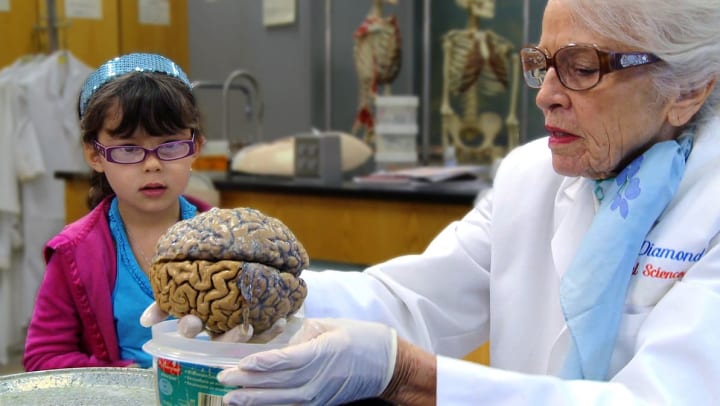
March is Women’s History month! Since we are 100% dedicated to memory care, we wanted to take a moment to focus on a few of the many amazing women who have made significant contributions in neurology. Without their hard work, our understanding of the brain would be nowhere near where it is today.
An increased understanding of our brains brings with it deeper insights as to those diseases and anomalies that impair its function, all of which are key in the fight to end Alzheimer’s disease. The Alzheimer’s Association, as well as ImproveMemory.com have spotlighted several outstanding women researchers in neurology, both past and present.
Below are five of these women, whose work has been instrumental in fostering a deeper understanding of the brain and helping drive innovation.
Cecile Vogt-Mugnier – Along with her husband, Oskar, she was the first scientist to clearly identify the structures of the brain. Together they created the first map of the cortex and thalamus portions of the brain. And their anatomical models are still used today.
Marian Cleeves Diamond – One of the founders of modern neuroscience, she is perhaps most noted for her study of the brain of Albert Einstein at the University of California, Berkeley. That research led to her findings that early experience and environmental enrichment can have a physical impact on the brain.
Anita Harding – One of the first scientists to study genetics and the brain, her focus was on creating diagnostic criteria to identify brain disorders that are genetic in origin. Her work at the Institute of Neurology, University of London has paved the way for additional groundbreaking research.
Patricia Goldman-Rakic – A professor of neurology at Yale University, her studies have been instrumental in identifying diseases and disorders associated with damage to the brain’s neural circuits. These disorders include Parkinson’s, attention deficit disorder (ADD) and Alzheimer’s.
Suzanne Corkin – World renowned for her research on the hippocampus region of the brain, she made the discovery that the hippocampus is where long term memories are stored. Her work at the Massachusetts Institute of Technology (MIT) also included insights into the impact on the brain of head injuries and diseases such as Parkinson’s and Alzheimer’s.
These are just a few of the women who, through their talents, dedication, and perseverance, are paving the way for today’s scientists to continue groundbreaking neurological research. Our hope is that these discoveries will lead to additional treatments and breakthroughs that will not only improve brain health but put an end to Alzheimer’s and other deadly diseases.
(The header image is of Dr. Marian Cleeves-Diamond, showing a model of a human brain to a child. Image credit: Wikipedia Creative Commons, Attribution-Share Alike 4.0 International.)